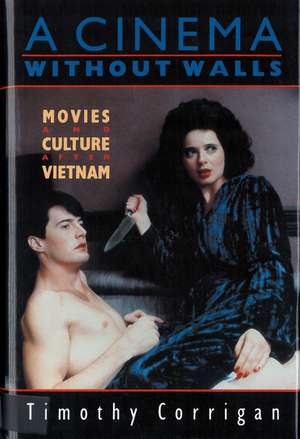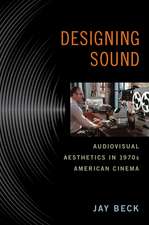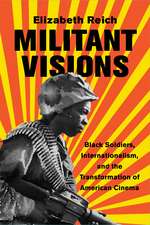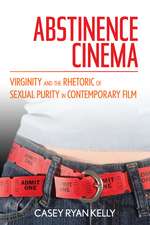A Cinema Without Walls: Movies and Culture after Vietnam
Autor Professor Timothy Corriganen Limba Engleză Paperback – sep 1991
"One of the sharpest and most productive analyses of our contemporaneity and the place of cinema within it and of our new historical relations as spectators to the imaginary universe on the movie screen. This is a study that will be of intense interest to film theorists and historians, cultural critics, mass media analysts, and anyone concerned with the complicated place of culture in our world today."--Dana Polan, English and Film Studies, University of Pittsburgh
How have modern advertising techniques, the widespread use of VCRs, conglomerate takeovers of studios and film archives, cable TV, and media coverage of the Vietnam war changed the ways we watch movies? And how, in turn, have those different habits and patterns of viewing changed the ways in which films address their viewers? Drawing on a wide variety of American and European films and on many theoretical models, Timothy Corrigan investigates what he calls "a cinema without walls," taking a close look at particular films in order to see how we watch them differently in the post-Vietnam era. He examines cult audiences, narrative structure, genre films (road movies, in particular), and contemporary politics as they engage new models of film making and viewing. He thus provides a rare, serious attempt to deal with contemporary movies. Corrigan discusses filmmakers from a variety of backgrounds and cultures, including Martin Scorsese, Raoul Ruiz, Michael Cimino, Alexander Kluge, Francis Ford Coppola, Stephen Frears, and Wim Wenders. He offers detailed analyses of films such as Platoon; Full Metal Jacket; 9-1/2 Weeks; The Singing Detective; Choose Me; After Hours; Badlands; The King of Comedy; Paris, Texas; and My Beautiful Laundrette. Orchestrating this diversity, Corrigan provides a critical basis for making sense of contemporary film culture and its major achievements.
How have modern advertising techniques, the widespread use of VCRs, conglomerate takeovers of studios and film archives, cable TV, and media coverage of the Vietnam war changed the ways we watch movies? And how, in turn, have those different habits and patterns of viewing changed the ways in which films address their viewers? Drawing on a wide variety of American and European films and on many theoretical models, Timothy Corrigan investigates what he calls "a cinema without walls," taking a close look at particular films in order to see how we watch them differently in the post-Vietnam era. He examines cult audiences, narrative structure, genre films (road movies, in particular), and contemporary politics as they engage new models of film making and viewing. He thus provides a rare, serious attempt to deal with contemporary movies. Corrigan discusses filmmakers from a variety of backgrounds and cultures, including Martin Scorsese, Raoul Ruiz, Michael Cimino, Alexander Kluge, Francis Ford Coppola, Stephen Frears, and Wim Wenders. He offers detailed analyses of films such as Platoon; Full Metal Jacket; 9-1/2 Weeks; The Singing Detective; Choose Me; After Hours; Badlands; The King of Comedy; Paris, Texas; and My Beautiful Laundrette. Orchestrating this diversity, Corrigan provides a critical basis for making sense of contemporary film culture and its major achievements.
Preț: 289.97 lei
Nou
Puncte Express: 435
Preț estimativ în valută:
55.50€ • 57.78$ • 46.90£
55.50€ • 57.78$ • 46.90£
Carte tipărită la comandă
Livrare economică 10-24 martie
Preluare comenzi: 021 569.72.76
Specificații
ISBN-13: 9780813516684
ISBN-10: 0813516684
Pagini: 272
Dimensiuni: 152 x 222 x 18 mm
Greutate: 0.4 kg
Ediția:None
Editura: Rutgers University Press
Colecția Rutgers University Press
ISBN-10: 0813516684
Pagini: 272
Dimensiuni: 152 x 222 x 18 mm
Greutate: 0.4 kg
Ediția:None
Editura: Rutgers University Press
Colecția Rutgers University Press
Notă biografică
TIMOTHY CORRIGAN is a professor of English and film at Temple University. He is the author of Writing about Film and New German Film: The Displaced Image, and editor of The Films of Werner Herzog: Between Mirage and History.
Cuprins
Acknowledgments
Introduction: Leaving the Cinema
The Nostalgia for History
1 Glancing at the Past: From Vietnam to VCRs
Refiguring an Audience
2 Illegible Films: Texts without Secrets
3 Films and the Culture of Cult
Dissolving Views
4 The Commerce of Auteurism: Coppola, Kluge, Ruiz
5 Genre, Gender, and Hysteria: The Road Movie in Outer Space
6 Interminable Tales of Heaven and Hell
Policies and Contemporary Movies
7 Spinning the Spectator: Fans and Terrorists in the Third Generation
Afterword: Mobile Homes
Notes
Works Cited
Introduction: Leaving the Cinema
The Nostalgia for History
1 Glancing at the Past: From Vietnam to VCRs
Refiguring an Audience
2 Illegible Films: Texts without Secrets
3 Films and the Culture of Cult
Dissolving Views
4 The Commerce of Auteurism: Coppola, Kluge, Ruiz
5 Genre, Gender, and Hysteria: The Road Movie in Outer Space
6 Interminable Tales of Heaven and Hell
Policies and Contemporary Movies
7 Spinning the Spectator: Fans and Terrorists in the Third Generation
Afterword: Mobile Homes
Notes
Works Cited
Recenzii
"One of the sharpest and most productive analyses of our contemporaneity and the place of cinema within it and of our new historical relations as spectators to the imaginary universe on the movie screen. This is a study that will be of intense interest to film theorists and historians, cultural critics, mass media analysts, and anyone concerned with the complicated place of culture in our world today."
Descriere
"One of the sharpest and most productive analyses of our contemporaneity and the place of cinema within it and of our new historical relations as spectators to the imaginary universe on the movie screen. This is a study that will be of intense interest to film theorists and historians, cultural critics, mass media analysts, and anyone concerned with the complicated place of culture in our world today."--Dana Polan, English and Film Studies, University of Pittsburgh How have modern advertising techniques, the widespread use of VCRs, conglomerate takeovers of studios and film archives, cable TV, and media coverage of the Vietnam war changed the ways we watch movies? And how, in turn, have those different habits and patterns of viewing changed the ways in which films address their viewers? Drawing on a wide variety of American and European films and on many theoretical models, Timothy Corrigan investigates what he calls "a cinema without walls," taking a close look at particular films in order to see how we watch them differently in the post-Vietnam era. He examines cult audiences, narrative structure, genre films (road movies, in particular), and contemporary politics as they engage new models of film making and viewing. He thus provides a rare, serious attempt to deal with contemporary movies. Corrigan discusses filmmakers from a variety of backgrounds and cultures, including Martin Scorsese, Raoul Ruiz, Michael Cimino, Alexander Kluge, Francis Ford Coppola, Stephen Frears, and Wim Wenders. He offers detailed analyses of films such as Platoon; Full Metal Jacket; 9-1/2 Weeks; The Singing Detective; Choose Me; After Hours; Badlands; The King of Comedy; Paris, Texas; and My Beautiful Laundrette. Orchestrating this diversity, Corrigan provides a critical basis for making sense of contemporary film culture and its major achievements. Timothy Corrigan is a professor of English and film at Temple University. He is the author of Writing about Film and New German Film: The Displaced Image, and editor of The Films of Werner Herzog: Between Mirage and History.









